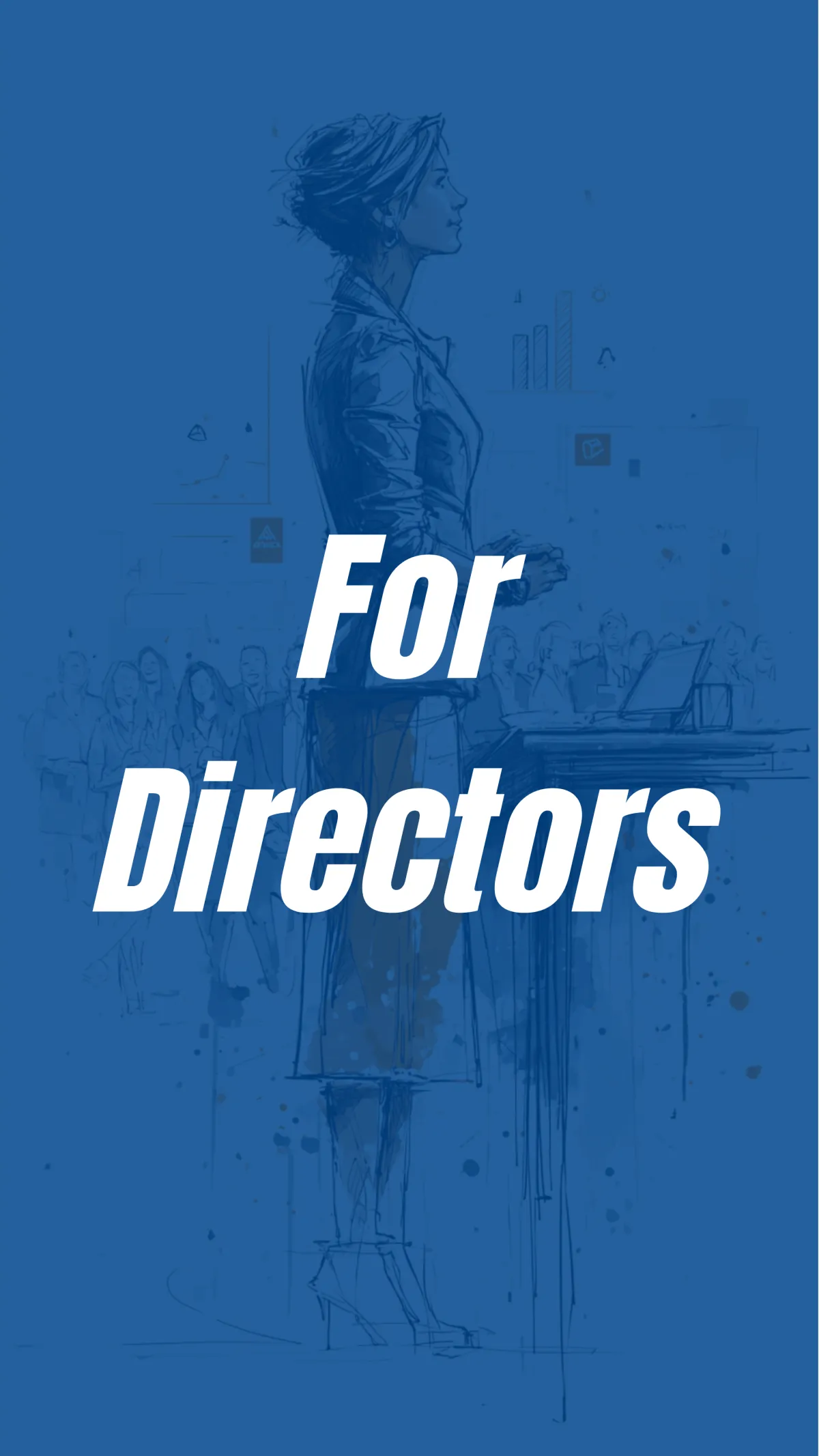
What's Your Real Estate Event Backup Plan?
You pour so much energy into your real estate events. Whether it's an open house, a client appreciation gathering, or a training seminar, you want it to be perfect. But what happens when things don't go according to plan? What's your real estate event backup plan?
Having a solid safety net can be the difference between a minor hiccup and a complete disaster for any real estate agent. It's time to think about What's your real estate event backup plan? to protect your hard work and reputation in the competitive real estate industry.
Unlock your potential with AI-powered solutions tailored to your real estate needs. Save time, grow faster, and work smarter. Schedule your discovery session now at lesix.agency/discovery.
Why Even Bother with a Backup Plan?
It's natural to focus on success; we all want our events to run smoothly. But, relying only on positive thinking leaves you vulnerable when the unexpected happens. And in event planning, the unexpected often has a way of showing up, especially for busy estate agents juggling multiple tasks. Common event problems can throw even the most seasoned real estate professional for a loop, impacting their ability to achieve successful real estate outcomes.
Imagine your keynote speaker for a first-time homebuyer seminar, crucial for your real estate investing leads, gets stuck in traffic. Or the Wi-Fi at your swanky networking event, designed to attract new estate investing clients, suddenly dies. Perhaps a sudden downpour threatens your carefully planned outdoor client appreciation party, an important part of your marketing plan. These aren't just minor annoyances; they can seriously impact your event's success and how people see your brand, potentially affecting your ability to secure a higher price for listings discussed or connections made.
Without a plan B, you're left scrambling. This can lead to stress, financial loss, and a hit to your professional image, which is detrimental in the estate industry. A well-thought-out backup strategy isn't about being negative; it's about being prepared and professional, helping to mitigate risks. It shows you're ready for anything, a quality that clients appreciate in real estate agents.
What's Your Real Estate Event Backup Plan? Key Areas to Cover
Creating a thorough backup plan means looking at all the potential weak spots in your event marketing. Think through every part of your event, from initial promotion to post-event follow-up. Where could things go off track, especially during an important online event? By pinpointing these areas, you can develop specific actions to take and create effective backup plans.

Technology Glitches: Your Digital Lifeline
We depend heavily on technology for modern real estate events, including many virtual events. From presentations for residential real estate to check-ins for seminars, tech is everywhere. This also means tech failures can bring things to a screeching halt, disrupting the flow of information about property conditions or market analyses. Many successful real estate professionals leverage technology, so failure here is significant.
What if the internet goes down during your live event online? Always have a mobile hotspot ready as a backup. Better yet, download all critical presentations and files onto a laptop so you don't need live internet access, especially if discussing a critical offer situation. What about the microphone or sound system? Test it thoroughly beforehand, and if possible, have a spare microphone or a portable speaker system on hand. Even basic microphone troubleshooting knowledge can be a lifesaver for any estate agent presenting.
Presentation software can also crash. Save your slides as a PDF. This format is often more stable and can be opened on almost any device, ensuring your insights on common real estate trends are shared. This way, if your primary laptop or software fails during one of your events online, you can quickly switch without major disruption.
Weather Woes: Mother Nature's Curveballs
Weather is one of the biggest wildcards, especially for outdoor events. An unexpected rain shower can send guests running, impacting your efforts. For any outdoor real estate function, like a summer open house barbecue for residential real prospects or a community meet-and-greet in a park—perhaps even one with activities for boys & girls—have a rain plan. Considering the local climate is part of good planning.
This could mean securing high-quality event tents in advance. Or, identify an alternative indoor location nearby, perhaps even negotiating a conditional clause with a secondary venue within a specific time frame. Sometimes, the best option is to have a backup reschedule date communicated from the start as a possibility. For events sensitive to extreme heat or cold, plan for guest comfort. This means providing plenty of water, shade, and fans for hot days, or heaters and an indoor break area for cold days. A real estate agent must think of attendee comfort.
Always monitor the weather forecast closely leading up to your event. Have a clear communication plan to inform attendees of any changes due to weather. This shows you're considerate and organized, essential traits for building trust in the common real estate market.
Vendor No-Shows or Issues: Keeping the Show Going
Your event's success often relies on third-party vendors. This includes caterers, photographers, entertainers, or even rental companies for tables and chairs. But what if a vendor cancels at the last minute or provides subpar service, affecting the presentation of a property or the overall guest experience? This is where having a legally binding contract becomes vital.
It's smart to cultivate a list of backup vendors you trust. These are folks you can call in a pinch, essential for anyone in the real estate industry. Before signing any binding contract, review it carefully. Make sure there are clauses addressing non-performance or cancellations by the vendor and what constitutes fair market service. Designate a team member to be the point person for vendors on event day. This person can handle any issues quickly, so you can focus on your guests and potential clients interested in real estate investing.
If a caterer is late, for example, your point person might arrange for some pre-packaged snacks or drinks from a local store to tide guests over. Having a contingency fund for such small, unexpected expenses can also be very helpful. These backup plans can save the day and protect your reputation as a professional estate agent.
Speaker or Presenter Problems: When the Star Doesn't Shine
Many real estate events, like workshops or association meetings, depend on speakers or presenters. If your main speaker gets sick, has a travel delay, or simply doesn't show up, it can leave a big hole in your agenda. This is a common fear for event organizers, as the speaker often delivers key information about the estate industry or investment opportunities.
One strategy is to have a backup speaker lined up, especially for very important sessions. This might be someone from your own team of real estate agents who is knowledgeable on the topic. Alternatively, prepare an alternative presentation or activity that can fill the time slot. Can another team member confidently deliver a modified version of the talk, or perhaps lead an interactive Q&A session on a related subject, like navigating a backup offer situation?
For truly critical information, consider pre-recording a portion of the speaker's content. This isn't ideal for engagement, but it ensures the core message is delivered if the live speaker is unavailable. Always get presentation materials from speakers well in advance; this foresight can help you mitigate risks associated with speaker availability.
Low Turnout: Tackling the Empty Room Fear
This is a nightmare scenario for any event planner, including seasoned real estate professionals. You've marketed, you've planned, but not enough people show up. First, try to understand the common reasons. Was it a promotion issue with your event marketing? Unfortunate timing conflicting with other major happenings? Or maybe the topic, perhaps related to a niche area of estate investing, wasn't as appealing as you thought.
If you sense attendance might be low a day or two before, consider a last-minute digital push. Use social media stories, targeted ads, or a final email blast to remind people and encourage late registrations; these are quick additions to your marketing plan. Think about how you can adjust the room setup. A smaller crowd in a reconfigured space can feel more intimate and engaged than a sparse crowd in a large, empty-looking hall.
Even if turnout is low, capture the content. Record presentations or discussions. You can then share this valuable information with those who registered but couldn't attend, or use it as marketing material for future virtual events. This helps you get more value from your efforts and ensures your content on residential real estate reaches its audience.
Venue Mishaps: When Your Location Lets You Down
Sometimes, the venue itself can be the source of problems. Imagine arriving to find it's been double-booked, or there's an unexpected power outage affecting your ability to discuss important property conditions. Accessibility issues that weren't apparent during your site visit could also arise, which is a significant concern for any inclusive real estate agent.
For very large or critical events, scouting a backup venue might seem extreme, but it's worth considering, especially if the event is central to generating backup offers for a major listing. At the very least, understand your contract with the primary venue, ensuring it's a legally binding contract. What are their responsibilities if they can't provide the space as promised? Who covers costs for an alternative if they are at fault? Knowing your event contract clauses is important when planning common real estate gatherings.
Always do a thorough walkthrough before the event. Test everything you'll need, like power outlets, lighting, and AV connections. Have contact numbers for venue management readily available to address problems quickly, ensuring the setting meets fair market standards for your event type.
Health & Safety Scares: Always Priority One
Guest safety should always be your top concern. While major emergencies are rare, minor issues can happen. Have a well-stocked first-aid kit on hand, and make sure at least one team member knows basic first aid. This is a fundamental way to mitigate risks.
For larger events, develop an emergency evacuation plan. Know the exits and rally points. Have contact numbers for local emergency services clearly posted for your team. Depending on the current environment, you might also need to consider public health guidelines, like providing hand sanitizer or information on health protocols. Be mindful of your privacy policy if you need to collect any health-related information from attendees for contact tracing or other purposes. Thinking about these things beforehand means you can act quickly and responsibly if needed, which is critical for any successful real estate professional.
Building Your Real Estate Event Contingency Document
Ideas are great, but a real backup plan needs to be written down. If it's all in your head, it's not truly a plan, especially when stress levels are high during an unfolding offer situation or event crisis. Creating a formal contingency document is a crucial step for real estate agents. This document acts as your playbook when things go sideways, detailing your backup plans.
What should this document include? Start with a comprehensive contact list. This isn't just your team members; include all your vendors, venue management, and key local emergency services. For each potential risk you've identified (weather, tech, speaker issues, problems with backup offers processes being explained), outline specific backup actions. Don't just say "find backup internet"; specify "use mobile hotspot X, tested by Y person on Z date." Having such detailed backup plans helps ensure continuity for your estate industry event.
Clearly define roles and responsibilities. Who is in charge of activating the weather plan? Who contacts the backup caterer? A communication tree is also vital. This shows who needs to be informed, and in what order, when a part of the backup plan is put into motion. Finally, include checklists. These can cover pre-event checks for your backup equipment, steps to take during a specific type of incident, and even post-event notes to improve the plan for next time. Consider a table format for clarity:

This structured approach helps manage various scenarios methodically. Your document should also outline the time frame for activating certain backup measures, especially for time-sensitive elements of your event marketing or discussions on residential real estate.
Communicating Your Backup Plan: Everyone on the Same Page
Your brilliantly crafted contingency document won't do much good if your team doesn't know about it. Effective communication is essential for all estate agents and their teams. Everyone involved in the event, from volunteers to key staff organizing events online, should understand the basics of the backup plan and how it helps achieve successful real outcomes.
Schedule a team meeting specifically to go over the contingency plans. Don't just hand out the document; discuss the scenarios. For more complex procedures, like using backup AV equipment or initiating an emergency communication protocol for an online event, a quick walkthrough or training session can be invaluable. Make sure everyone knows who is responsible for what, from handling a difficult offer situation query to managing a tech issue.
It's also important to think about how you'll communicate with attendees if a backup plan needs to be activated. Will you use email, text messages, social media, or announcements at the event itself? Having pre-drafted messages for common scenarios (like a venue change due to weather affecting common real estate viewings) can save precious time when you're under pressure. Clear, calm communication keeps everyone informed and reduces confusion, reflecting well on your professionalism as a real estate agent.
Learning from Setbacks: Turning Problems into Progress
After every real estate event, even if everything seemed to go perfectly, take some time to review. This is especially important if you had to use any part of your backup plan or if an issue arose that wasn't anticipated in your backup offers strategy for clients. Think of it as a debrief. What worked well? What didn't?
Were there any near-misses that didn't quite turn into problems but could have? These are valuable learning opportunities for future event marketing. For instance, maybe the Wi-Fi flickered a few times but didn't go out completely during your presentation on estate investing. That's a sign to strengthen your internet backup for the next event. Feedback from your team of real estate agents who were on the ground is also critical. They might have noticed small issues or potential improvements you weren't aware of, like property conditions at an open house that weren't ideal.
Use these insights to update and refine your contingency document. A backup plan isn't a static thing you create once and forget; it's part of a dynamic approach to mitigate risks. It should evolve as you gain more experience and encounter new situations within the real estate industry. Each event, successful or challenging, offers lessons to make your future events even better and more resilient. This proactive approach helps build stronger risk management for all your professional activities, contributing to more successful real estate transactions and potentially a higher price on sales due to enhanced client trust.
Conclusion
Planning successful real estate events takes significant effort, creativity, and attention to detail. Protecting that investment with a thorough contingency strategy, including backup plans for everything from tech to vendors, is simply smart business for any real estate agent. Knowing you have a plan B (and C, and D.) for common event challenges offers incredible peace of mind and is fundamental for those in the estate industry.
It allows you to focus on your guests and your goals, like explaining a backup offer or showcasing residential real estate, rather than constantly worrying about what might go wrong. Instead of reacting to problems in a panic, you can respond calmly and effectively, often without your attendees even noticing there was an issue with your online event or physical gathering. This preparedness supports your marketing plan and helps maintain a professional image, crucial for successful real estate agents.
So, what's your real estate event backup plan? If you don't have a clear answer, now is the perfect time to start creating one. This forethought is a hallmark of professional real estate agents and is vital for anyone serious about real estate investing or excelling as an estate agent.
Ready to take your real estate success to the next level? Schedule your discovery session today at lesix.agency/discovery. Stay ahead with tips and insights—subscribe to our newsletter at lesix.agency/newsletter.










